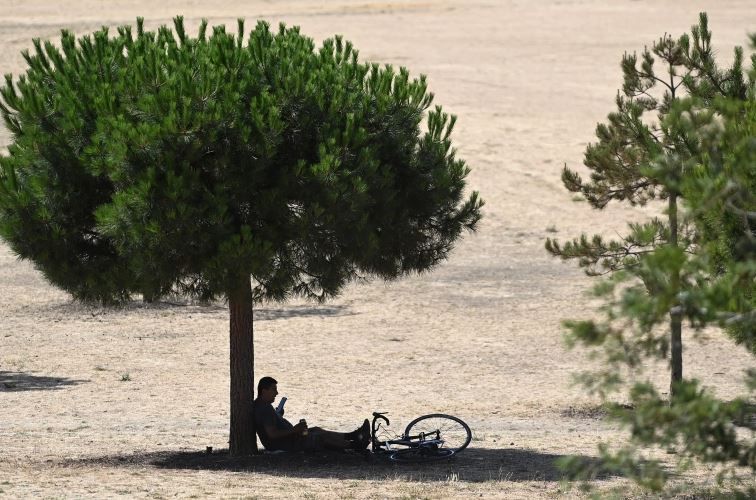On Tuesday, the United Kingdom’s weather service issued an amber “Extreme Heat” warning for parts of England and Wales, stating that there is no sign of relief from the hot, dry conditions that have been responsible for starting fires, shattering temperature records, and putting a strain on the nation’s infrastructure.
According to the United Kingdom Meteorological Office (UK Met Office), the amber warning, which is the second-most severe after the red alert and will be in force from Thursday until the end of Sunday, signifies that persons who are prone to excessive heat might have poor health impacts.
Temperatures are forecast to reach their high point of 35 degrees Celsius (95 degrees Fahrenheit) on Friday, and in some areas they may reach 36 degrees Celsius on Saturday.
The warning comes after England had its driest July since 1935, during which temperatures reached above 40 degrees Celsius for the first time. This brought fresh attention to the negative effects of climate change.
During the last several weeks, other countries in Europe have also been afflicted by a blistering heatwave, with temperatures often topping 40 degrees Celsius.
The United Kingdom, which is less used to such high temperatures, has had a difficult time coping with them.
The heatwave that hit London in July caused power outages, damaged airport runways, cracked rail lines, and set scores of fires. The city’s fire force experienced its busiest week since World War II as a result of the heatwave’s effects.
Due to the high temperatures this week and the long term forecasts of dry weather, Britain’s largest water company, Thames Water, which serves 15 million customers across London and south east England, stated on Tuesday that it was planning to announce temporary usage restrictions in the coming weeks. Thames Water serves 15 million customers across London and south east England.
There have already been limits implemented by a number of other water suppliers, and shops have banned their sales of disposable barbecues, which firemen have warned might start fires in dry, tinder-like grass. There have been hundreds of calls sent to emergency medical services from individuals who are having trouble breathing, feeling weak, or dizzy.
The amber warning, which comes after the United Kingdom issued its first-ever red “Extreme Heat” warning in July, encompasses a significant portion of the southern half of England as well as portions of the eastern half of Wales.
Climate change, according to the findings of some researchers, rendered the heat wave that occurred in July at least ten times more probable.

